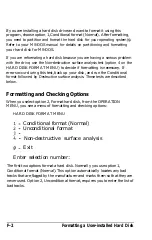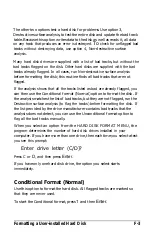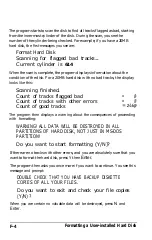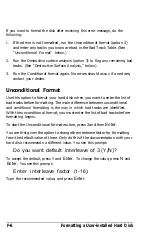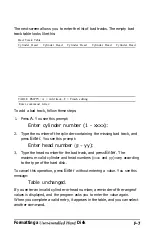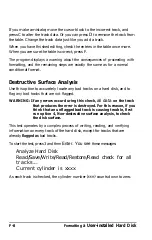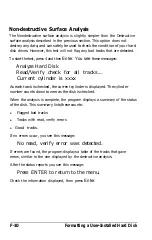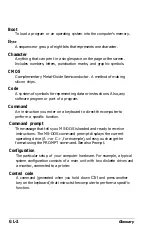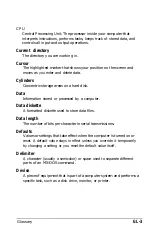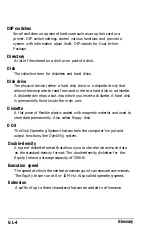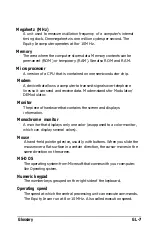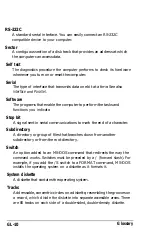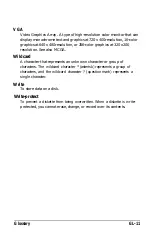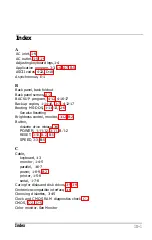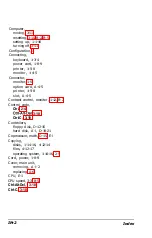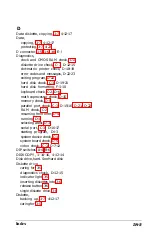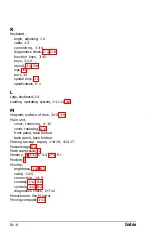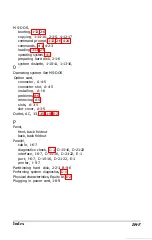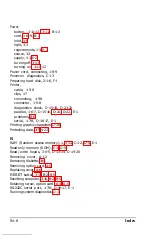
File
A group of related pieces of information called records, or entries, stored
together on a disk. Text files consist of words and sentences. Program
files consist of code and are used by computers to interpret and carry out
instructions.
Filename
A name of up to eight characters that MS-DOS uses to identify a file.
Floppy disk
See Diskette.
Format
To prepare a new disk (or erase an old one) so that it can store
information. Formatting a disk divides it into tracks and sectors and
creates addressable locations on it.
Graphics
Lines, angles, curves, and other non-alphanumeric data.
GW-BASIC
Microsoft’s extended version of the Beginner’s All-purpose Symbolic
Instruction Code. A programming language designed to be easy to use
and understand.
Hard disk
The enclosed unit used to store data permanently. Unlike a diskette, it is
fixed in place inside the computer. It can process data more rapidly and
store many more files than a diskette.
Hardware
Any physical component of a computer system, such as a monitor,
printer, keyboard, or CPU.
Hexadecimal
A base 16 numbering system frequently used by programmers. Any
decimal number between 0 and 255 can be represented by a two-digit
hexadecimal number.
Glossary
GL-5
Summary of Contents for Equity Ie
Page 1: ...EQLJITYIe User s Guide EPSON ...
Page 2: ...EPSON EGlLJITYIe User s Guide Q50188015 1 ...
Page 5: ...iv ...
Page 47: ...3 12 Using the Equity Ie ...
Page 73: ...4 26 Using MS DOS with Your Equity Ie ...
Page 147: ...EQLJITYIe m la r ...


